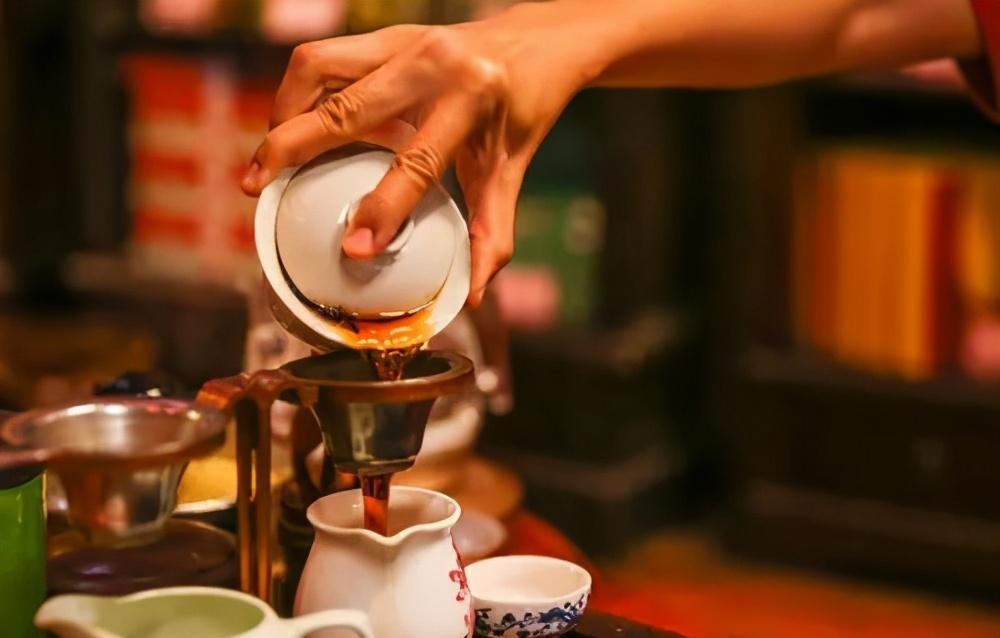Liupao tea, which belongs to black tea, is a specialty of Wuzhou City in Guangxi Zhuang Autonomous Region. The fresh leaves of tea trees of Cangwu County group species and Guangxi large-leaf species are selected as raw materials, and processed according to specific processes, which have unique quality characteristics of red and rich alcohol.

01.
Historical origins
Liupao tea flourished in the Tang and Song dynasties, flourished in the Ming and Qing dynasties, and during the Qing Jiaqing period, Liupao tea was included in the list of famous Chinese teas with its special betel nut flavor.
According to the "Cangwu County Chronicle" compiled during the Kangxi Dynasty, "Tea production is more than six forts in Duoxian Township, the taste is mellow and unchanged, and the tea color and aroma are good", indicating that at this time, Cangwu Liupao tea already had the characteristics of black tea and began large-scale production.
▲Wuzhou Tea Factory
Liupao tea from the beginning of its birth is a public tea for the people to drink, in the history of its most vigorous sales period, the target consumer group is mainly engaged in manual work in Southeast Asia Chinese workers, for them to cool off the heat.
02.
Quality characteristics and processing technology
Liupao tea is known for its four best qualities: "red, strong, aged and mellow". Its cords are long and tightly knotted, the soup is red and thick, the aroma is thick, and the taste is mellow and delicious. Orthodox should have a pine smoke and betel nut flavor and a copper-brown leaf bottom.
The production of Liupao tea is made by using the fresh leaves of the local large-leaf tea plant as raw materials, and the picking standard is one bud, two or three leaves or one bud, three or four leaves of mature new shoots, which are made by killing, kneading, piling, re-kneading and drying.
The characteristics of Qingqing are low temperature Qingqing; kneading is mainly based on plastic surgery, supplemented by cell fragmentation; Wo Dui is a key process to form the unique quality of Liupao tea, the purpose of which is to promote the change of contained substances, reduce the bitter taste, make the taste alcohol, eliminate the green odor, and make the leaf color become dark yellowish brown through the damp heat effect of wo dui.
03.
The difference between Anhua black tea and Pu'er tea
What is the difference between the same black tea, Liupao tea and Anhua black tea and Pu'er tea?
First of all, the tree species are different, although they all belong to the large-leaf species, but Pu'er tea, Liupao tea and Anhua black tea belong to the three categories of large-leaf species, medium and small.
Secondly, from the perspective of technology, Liupao tea is relatively close to the ripe Pu'er tea, all of which are Wodui fermentation, and raw Pu and Anhua black tea do not have this piece of technology. In addition, the soup color of Liupao tea is brighter than that of cooked pu, with fewer impurities, and the taste is milder than that of raw pu and Anhua black tea.
04.
Why use more small bamboo baskets for storage?
Small bamboo basket packaging is a major feature of Liupao tea, the hair tea after steaming, basket compaction, and then placed in the shade dry place, dry storage for several months through the fermentation of the tea tightly into a lump, you can form a unique mellow aroma of liupao basket tea.
The traditional bamboo basket packaging is conducive to the continuous transformation of the contents of the tea when it is stored, so that the taste becomes mellow, the soup color deepens, and the old fragrance is revealed.
05.
How is it stored?
For Liupao tea, in addition to following the basic consensus of tea collection, the method of Tibetan tea should also meet the storage environment requirements of black tea.
Temperature has a great impact on the aroma, soup color, taste, etc. of tea, and when the water content of tea exceeds 6%, the changes in various components will also accelerate. Therefore, Liupao tea must be stored in a light-protected, dry and ventilated environment.
Tea has adsorption, especially black tea, and the adsorption capacity is stronger during the aging process, so Liupao tea should not be stored with substances with strong odors such as paint, wine, chemical volatile odors and so on.
"The sun and the moon in the pot, health care and longevity."